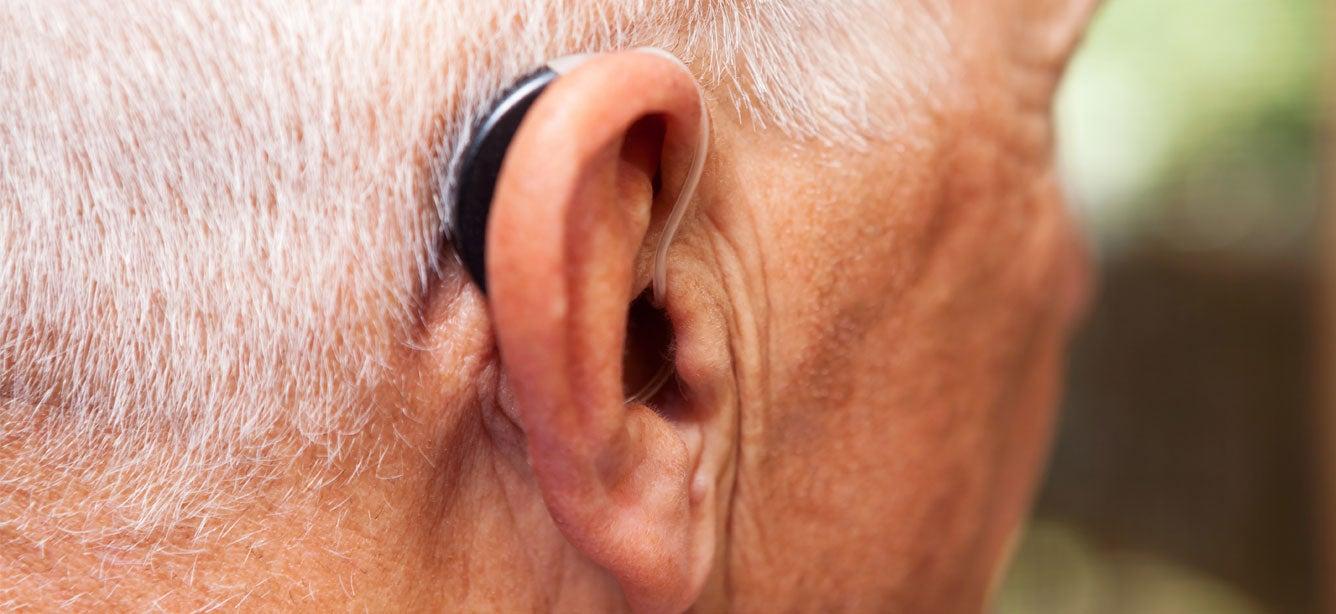
Related Topics
The loss of your hearing can make everyday life a challenge—from how you participate in conversations with friends and family to your ability to enjoy movies and concerts. This can be frustrating and embarrassing. It can even impact your mental health.
If you have difficulty hearing, you're far from alone: One in three older adults in the U.S. age 65-74, and over half of those age 75+, have hearing loss.1
Yet while Medicare pays for a wide range of services, including many preventive benefits, it does not pay for hearing aids and routine hearing tests.
Does Medicare cover hearing aids and tests?
Original Medicare (Parts A & B) does not cover hearing exams or hearing aids and fittings. Medicare Part B does cover diagnostic hearing and balance exams if a provider orders these tests to see if a person requires medical treatment for a condition other than hearing loss. For example, such tests may be used to diagnose the cause of dizziness or vertigo.
How much will I have to pay out of pocket for hearing aids?
Since original Medicare doesn’t pay for prescription hearing aids ordered by a professional, you’d pay the full cost—often $1,000–$4,000 per pair.
But there’s good news: If you have mild to moderate hearing loss (not severe hearing loss), you can buy hearing aids over the counter (OTC) without the need for a medical exam, prescription, or professional fitting. OTC hearing aids can cost up to several thousand dollars less than prescription hearing aids. Check out NCOA’s complete guide to OTC hearing aids.
Can I get hearing aid and hearing exam coverage through Medicare Advantage?
Yes. Most Medicare Advantage (Part C) plans offer hearing benefits that can be used to cover hearing exams, hearing aids, and more—but the type and amount of coverage can vary quite a bit by plan. If you have Medicare Advantage, check with your plan to see what it covers.
Does Medicaid cover hearing services if I have both Medicare and Medicaid?
Yes, if you have both Medicare and Medicaid (this is called being “dual eligible”), Medicaid may cover hearing services that Medicare does not. Coverage varies by state, but Medicaid often helps pay for hearing exams, hearing aids, and related services. To find out exactly what’s covered, check with your state Medicaid office or your health plan provider.
Where can I get help paying for hearing aids and tests?
If you need financial assistance for hearing aids and hearing exams, the resources below may be able to help:
- Sertoma, a civic service organization that helps connect people with hearing assistance, has a comprehensive listing of national and state charitable programs, organized by state.
- Help America Hear is an assistance program from the Foundation for Sight and Sound. It provides new hearing aids for people with low income.
- The Hearing Industries Association maintains a Guide to Financial Assistance for Hearing Aids. The association also recommends negotiating on the price of hearing aids.
- The Hearing Loss Association of America offers guidance on its Financial Assistance webpage.
- Some local Lions’ Clubs run projects that distribute affordable hearing aids to those in need. Contact your local chapter to see if it offers this program.
Sources
1. National Institute on Deafness and Other Communication Disorders. Hearing Loss & Older Adults. Found on the internet at https://www.nidcd.nih.gov/health/hearing-loss-older-adults



